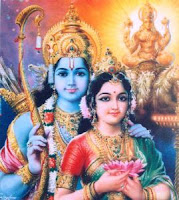Pakistan: Secularism or Islam?

The secular people of Pakistan claim that Pakistan should be a secular state, because Quaid-e-Azam in his address (August 11, 1947) to the Constituent Assembly of Pakistan presented the blueprint of a secular state. If, for a while, we ignore what Quaid said on the issue, before August 11, 1947 and after it, and accept the notion that Quaid really presented the idea of a secular state in his address, even then the claim of the secular people turns out to be a mere propaganda, based on distorted account of history. Quaid’s so-called view of secular Pakistan was infact the opinion of an individual. While the people of Pakistan, through their representatives in the first Constituent Assembly, rejected this view of an individual, by passing Objectives Resolution on March 12, 1949, through overwhelming majority. Through this resolution, the people of Pakistan approved Allama Iqbal’s view regarding the political scheme of the new country.
In his letter to Quaid, while elaborating the need for a new country for Muslims of India, Allama Iqbal wrote:
“Happily there is a solution in the enforcement of the Law of Islam and its further development in the light of modern ideas. After a long and careful study of Islamic Law I have come to the conclusion that if this system of Law is properly understood and applied, at last the right to subsistence is secured to every body. But the enforcement and development of the Shariat of Islam is impossible in this country without a free Muslim state or states. This has been my honest conviction for many years and I still believe this to be the only way to solve the problem of bread for Muslims as well as to secure a peaceful India.” (May 28, 1937)
According to the interpretation of the secular people, Quaid deviated from Allama Iqbal’s concept, and the very basis of the demand of Pakistan. To support their view, the secular people quote the following sentences of Quaid’s address:
“You may belong to any religion or caste or creed that has nothing to do with the business of the State. As you know, history shows that in England, conditions, some time ago, were much worse than those prevailing in India today. The Roman Catholics and the Protestants persecuted each other. Even now there are some States in existence where there are discriminations made and bars imposed against a particular class. Thank God, we are not starting in those days. We are starting in the days where there is no discrimination, no distinction between one community and another, no discrimination between one caste or creed and another. We are starting with this fundamental principle that we are all citizens and equal citizens of one State. The people of England in course of time had to face the realities of the situation and had to discharge the responsibilities and burdens placed upon them by the government of their country and they went through that fire step by step. Today, you might say with justice that Roman Catholics and Protestants do not exist; what exists now is that every man is a citizen, an equal citizen of Great Britain and they are all members of the Nation.
Now I think we should keep that in front of us as our ideal and you will find that in course of time Hindus would cease to be Hindus and Muslims would cease to be Muslims, not in the religious sense, because that is the personal faith of each individual, but in the political sense as citizens of the State.”
The so-called idea of Quaid’s secular Pakistan was rejected by the people of Pakistan, showing their will through first Constituent Assembly of Pakistan, which comprised of founders of Pakistan. There were 69 members in the Constituent Assembly and only 10 voted against the Resolution. And all these opposing members were Hindus. Even a non-Muslim, Sir Zafrullah Khan, an Ahmadi, also voted in the favour of making Pakistan an Islamic state. Here we reproduce Objectives Resolution passed by the first Constituent Assembly of Pakistan:
1.Sovereignty belongs to Allah alone but He has delegated it to the State of Pakistan through its people for being exercised within the limits prescribed by Him as a sacred trust.
2.The State shall exercise its powers and authority through the chosen representatives of the people.
3.The principles of democracy, freedom, equality, tolerance and social justice, as enunciated by Islam, shall be fully observed.
4.Muslims shall be enabled to order their lives in the individual and collective spheres in accordance with the teachings of Islam as set out in the Qur'an and Sunnah.
5.Adequate provision shall be made for the minorities to freely profess and practice their religions and develop their cultures.
6.Pakistan shall be a federation.
7.Fundamental rights shall be guaranteed.
8.The judiciary shall be independent.
It is a superb legal outline of Iqbal’s concept of modern Islamic state, as expressed by him in his addresses, in his poetry, and in his above quoted letter to Quaid-e-Azam. Those who oppose it, actually oppose the very basis of Pakistan, and if these opposing people are Muslims, they are in fact opposing their own claim of believing in Islam.
At the time Objectives Resolution was passed, Liaquat Ali Khan called it "the most important occasion in the life of this country, next in importance only to the achievement of independence". As far as the personal view of the writer of this blog is concerned, the event of passing Objectives Resolution is much more important achievement than the achievement of independence and the creation of Pakistan. Without it, creation of Pakistan had no validation.

Comments
Post a Comment